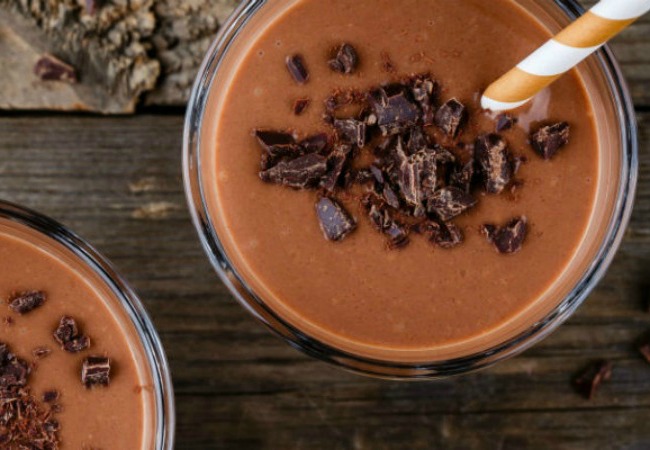

As the year is almost over, I thought I should wrap things up by recapping a few key points on 5 controversial questions many of you may have, especially since many of you maybe planning your new year resolutions.
I’ve churned out quite a bit of content this year, and I figured some of you may have missed some of it. So I’ve made it easier for you by updating this post and highlighting the key points from previous interviews I’ve conducted with renowned doctors and health experts.
Seriously, these recurring themes and questions just won’t go away. If you go on health forums, people can debate till they die (seriously!)
I’ve concluded that one’s person’s approach maybe different from another, and one approach might not work for everyone. Even research result findings contradict themselves! This is why I’ve featured different viewpoints on topics we’ve discussed previously from various health experts.
Of course, there are many other controversial topics that I have not featured and plenty of experts I have not interviewed yet (I’ll make it one of my new year resolutions to interview them all 😀 ), but until then… this post should suffice 🙂
Here are 5 topics this post will be addressing:
-
Does eating nuts make you fat?
-
Is fruit good or bad for you?
-
Should we avoid salt?
-
Where do you get protein from plants?
-
Should we avoid fat?
This post will be featuring parts of our previous interviews from a panel of renowned doctors and health experts including:
Dr. James Costello: Co-Founder of Stephen James Organics
Dr. Michael Greger: Founder of NutritionFacts.org
Dr. Christopher Gardner: Director of Nutrition Studies at the Stanford Prevention Research Center and Professor of Medicine at Stanford University
Dr. Douglas Graham: Author of The 80/10/10 Diet and Founder of FoodnSport
Katie Mae: Plant-based nutritionist and culinary instructor at the TrueNorth Health Center, and Dr. McDougall’s Health and Medical Center
Jack Norris, RD: Registered Dietitian, Co-founder of Vegan OutReach, and Co-Author of Vegan For Life: Everything You Need to Know to be Healthy and Fit on a Plant-Based Diet
Recurring Theme #1: Does Eating Nuts Make You Fat?
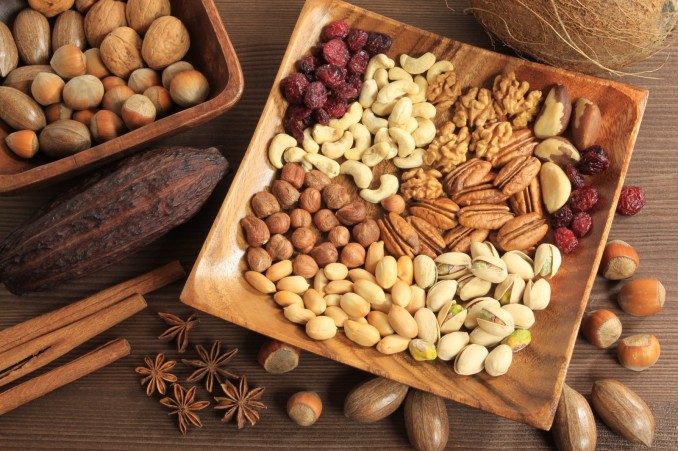
Q: I love eating nuts, and I know they’re great for you. But won’t eating nuts make you fat?
Dr. Michael Greger: Founder of NutritionFacts.org
If you look at the calories in nuts, you would expect that if you started eating a handful of nut a day, you know you’ll gain a couple of pounds over a few months because nuts are really caloric-dense.
However, this does not happen in most cases. And the question is: Why do people add nuts, in some cases handful of nuts, to their daily diet, and still not gain weight?
And in some cases, they may even lose weight. And the reasons come out to be a number of things. Nuts are so satiating that you naturally eat less other foods during the day.
Just by eating the two handfuls of walnuts throughout the day your body naturally realises how much calories it’s getting.
This just cuts down on other foods throughout the day. This also boosts your metabolism. This means that we burn more calories when we are sleeping, after having eaten walnuts.
There are numerous other facts suggesting that if you’re eating whole nuts a lot of fat actually just passes right through you, unless you’re chewing really good or eating nut butter. There are pieces of nuts that just don’t get digested, and so you are actually not accounting for those calories.
Dr. James Costello: Co-Founder of Stephen James Organics
Cooked nuts are relatively more fattening than pre-sprouted nuts since the enzymes are destroyed. But you still get more benefits than a meat source protein which is that it still has vitamins, fiber, minerals, phytochemicals, antioxidants, micronutrients! That’s a lot of difference!
When you ingest cooked nuts, your body will not recognise the lipids, since the lipase (fat enzyme) is destroyed and the oils are morphed by the heat. As a result, your body stores the lipids from nuts away as fat, or gets rids of them as toxins.
This is why we always recommend people to eat soaked, pre-sprouted nuts if possible.
Katie Mae: Plant-based nutritionist and culinary instructor at the TrueNorth Health Center, and Dr. McDougall’s Health and Medical Center
You get a lot of the nutrients, the phytonutrients, the iron and zinc and calcium, all these other things that our body needs when you’re consuming the whole nuts or the whole seed rather than just the oil, which is 100% fat, with very little nutrition added.
Verdict? From my research so far, seems like nuts are good for you and may not contribute to the expected weight gain! But if you’re still worried about weight gain, go for pre-sprouted and soaked nuts… hey chances are you will fart less and your digestive system will thank you 🙂
Recurring Theme #2: Is fruit good or bad for you?
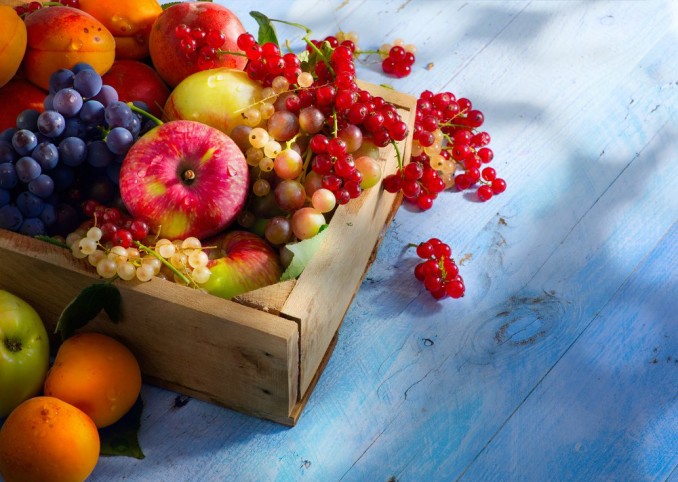
Q: Can eating fruit sugar slowly kill you…? REALLY?
Dr. Douglas Graham: Author of The 80/10/10 Diet and Founder of FoodnSport
Fruit sugars come with thousands of nutrients, fiber, and water. Refined sugar in candy has no other nutrients, no fiber, and typically has no water.
As a result, refined sugars are not nearly as good for you by any stretch, because you’re missing the nutrients, water, and fiber. Refined sugars are empty calories, stripped of their associated nutrients.
We know that the ideal for nutrition is to eat whole food, and so I differentiate between the sugars in fruits and the sugar in candy simply because candy is not a whole food.
Sugar has received a bad reputation given the Atkins movement. When people say no sugar, what they mean is no *refined* stuff like white bread and cookies.
When natural sugars are highly heated and processed as a potato chip or a cookie, we get what people think of as “carbs” in a negative sense.
However, raw, organic, and natural complex starches are healthy for us.
Dr. James Costello: Co-Founder of Stephen James Organics
Only plants synthesize carbohydrates (sugar). Complex sugars made by nature in plants are referred to as starches. In fact the name carbo- hydrate basically means “carbon = and water,” which is what plants make carbs out of, and which is all the waste product one is left with when one’s body uses them as fuel.
Natural sugar is “good,” because it provides us energy and fuel. Sugar is a water-based carbon entity that is a building block for the body (your liver) to make energy.
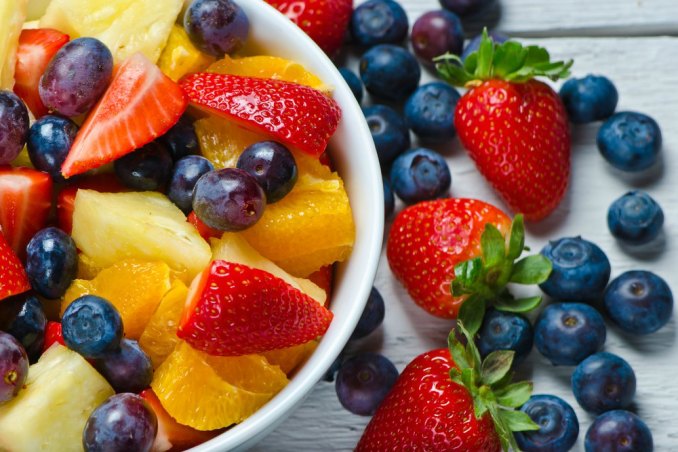
However, refined sugar, is not good, because it is highly processed, harder to break down, and has no nutritional value. It also causes a spike in blood sugar levels easily. For instance, high fructose corn syrup, originally derived from corn, has become a polysaccharide after heavy processing, which is harder to break down, can damage the liver, and easily be stored as fat in the body.
Natural sugar, however, contains fiber, vitamins, and phytochemicals which are all good for the body. Sugars from plants are closer to their whole food origins, which is easy for your body to recognize.
The best way is absorb carbs for your body is through fruit or plant sugar—natural, whole-food based carbs, instead of highly processed food-like carbs. The difference is night and day.
Dr. Michael Greger: Founder of NutritionFacts.org
There’s this Global Burden of Disease study, funded by Bill Gates and The World Bank. This was the largest study ever in the history of humankind on risk factors for disease. And it’s different in every country.
In United States, the number one killer is not eating enough fruit, according to them. And I think number two was smoking, right not smoking. So, it is more important to eat fruits than just to not smoke.
That was crazy, because they basically went through each of the diseases, and found out which proportion could be prevented by eating more fruits, and you add them all up you are like “Wow. Eat fruit.” So, I have a video coming out on that, in a while. It’s here.
Verdict? In my personal experience, fruit provides plenty of fiber, water and phytonutrients to our body. I believe fruit is good for most of us. And most of us can benefit from more fruit than not. Fruit may also lower risk of mortality.
And remember to eat the whole, fresh fruit not processed fruit juice, and processed dried fruit with added refined sugars. Better yet… make a fruit smoothie if you can’t be bothered with chewing.
Recurring Theme #3: Is salt healthy for you?

Q: Do we need salt? Is salt good or bad for us?
Dr. James Costello: Co-Founder of Stephen James Organics
Without salt, you don’t retain water properly. Sodium and chloride are critical to the human body. In some extreme cases, you need table salt to hydrate a person to prevent him/her from dying.
“Salt is life.” Every cell in your body has to have proper amount of sodium or you will die. This is something very basic to human biochemistry, called the sodium potassium pump. If there’s an imbalance, cells start to malfunction.
And chloride, if you don’t have chlorides in your diet, you will be deficient in HCI and have weak stomach acid and poor digestion.
Now the key is to recognize the difference between table salt and natural salt like Himalayan and sea salt.
Table salt is *not* natural. It can cause cellulite. If you have too much table salt, it holds water in interstitial spaces, the empty spaces or gaps between cell structure in your body, causing cellulite. Table salt also causes damage to the kidney meridian in Chinese medicine so it is to be avoided. Himalayan salt’s biochemical makeup is completely different so we will address that below.
Sea salt is a great natural source of sodium. However, given ocean pollution these days, sea salt is usually bleached, and heated up to kill germs. If you notice, Celtic sea salt is grey, and this should be sea salt’s natural color. Most of today’s sea salt on the shelves is bleached which means that it has been high-heated, thus ruining some of the salt’s effectiveness.
Since it is hard to determine the sourcing and processing of most sea salt, I believe Himalayan salt is a better choice. Himalayan salt provides electrolytes to our body, helps us maintain our blood pressure and fluid balance, muscle contraction, and glucose absorption.
According to a study by Fenestra Labs Study, Himalayan salt is shown to effective in helping to stabilize pH and oxidative stress numbers in the human body, as well as provide hydration. This is why we think Himalayan salt is the healthiest salt available.
Katie Mae: Plant-based nutritionist and culinary instructor at the TrueNorth Health Center, and Dr. McDougall’s Health and Medical Center
And now we actually know that even the salt is inflammatory, when you have excessive salt in your body that is.
Himalayan salt has a little bit of nutrients. It definitely does. But when you compare the nutrients in Himalayan salt to that in fruits and vegetables, the amount in himalayan salt is very insignificant.
If you wanted to actually make a significant dent in your nutrient intake by having Himalayan salt, you would be having so much that, I mean you’d be puffed up you couldn’t even consume the amount you needed to get those nutrients.
So it’s not something we should be having for nutrition. Then when it comes to the sodium, it’s really not any lower in sodium, so it still has a negative effect on our body.
Verdict? Seems like fruit and vegetables can provide us an adequate amount of sodium, especially if we’re eating vegetables high in sodium such as spinach. So perhaps adding salt to your foods isn’t necessary, and excessive salt intake can be associated with higher mortality.
However, since most of us aren’t completely salt-free, the best bet is to get our salt from natural sources like Himalayan salt. And in my personal experience, adding a hint of Himalayan salt to your foods really spices the flavour up… especially if you’re getting bored of your veggies 🙂
As one of your new year resolutions, you may want to limit salt and change where you get your salt from!
Recurring Theme #4: How do non-meat eaters get vegan protein from plants?
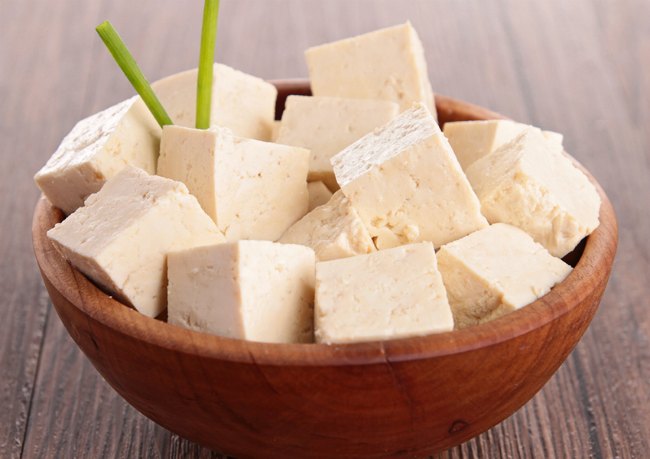
Q: What are the best sources of plant-based vegan protein, especially athletes?
Jack Norris, RD: Registered Dietitian, Co-founder of Vegan OutReach, and Co-Author of Vegan For Life: Everything You Need to Know to be Healthy and Fit on a Plant-Based Diet
#1: Soy Products
Some of the best sources of plant protein are tofu and tempeh, and soy meats such as Tofurky (How much of it is healthy?) – some of the Tofurky products have 29/30 grams of protein per serving.
(Editor’s note: I know soy is a controversial topic so you may want to read up about it here. You may want to limit your soy intake to 3-5 servings a day, though some studies show that soy may protect against breast and ovarian cancer.)
#2: Legumes
Other good sources are any legumes, peanuts, beans, peas, and garbanzo beans.
If you don’t like soy for some reason, you can get plenty of protein from those foods as well.
#3: Quinoa
Quinoa is also high in protein and essential amino acid lysine. Lysine tends to be the limiting amino acid in vegan diets so I encourage people to eat foods that are high in lysine. Legumes and quinoa are both high in lysine.
#4: Nuts and Seeds (Pistachio + Pumpkin Seeds)
Pistachios and pumpkin seeds are also high in lysine.
#5: Seitan
Seitan is high in both lysine and protein.
Dr. Michael Greger: Founder of NutritionFacts.org
The plant protein super star is the legume kingdom. So they are beans, split peas, lentils, chickpeas. These are the healthiest sources.
Whole plant-based food sources of proteins are the healthiest sources.
No Way, Whey?
I do not recommend people eat protein powders and protein supplements. I think people are just being brainwashed by this multi-million perhaps billion dollar industry of athletic supplements.
You’re getting your protein; we’re not deficient in protein.
What we need is all these other wonderful nutrients. We are not getting enough potassium; we are not getting enough fiber.
However, such nutrients are found in the food, in the plant foods that provide protein. You’ve got to think about the baggage that you want to come along with your food.
Food is a package deal. And so, I encourage people to eat whole foods rather than just isolating out of protein supplements.
Verdict: You can get your protein and bulk up on plants. Seems like legumes and quinoa are a great source of protein. Don’t believe me? Check out this insane superhuman bodyweight workout by Frank Medrano, a vegan bodybuilder. And you may want to think twice about whey.
Recurring Theme #5: Should we avoid fat?

Q: Is fat good or bad for us? Should we go low-fat?
Dr. James Costello: Co-Founder of Stephen James Organics
Let’s use an avocado and a bag of French fries as an example. Let’s say that the two have 500 calories respectively. The quality of the calories between the two is different, and hence the two foods are processed differently in our bodies. This also means that the avocado may not necessarily contribute to weight gain, while the bag of French fries would do so.
When you eat an avocado, the fats are metabolized by the naturally occurring fruit lipase and used by your body. When you eat French fries the fats are bereaved of enzymes, and stored as toxins.
When you ingest a lipid, what will end up digesting that fat and make sure you get nourished is an enzyme called “lipase.”
The lipase is naturally occurring in an avocado, especially a ripe one. This goes for all raw fruits and vegetables.
You eat the avocado, lipase dance with body and boosts brain health, nervous system and skin, so all the fat is used in the body. This applies to raw meat too, though you don’t get the fiber you get with the avocado.
Fats are one of the most important element in sustainable health.
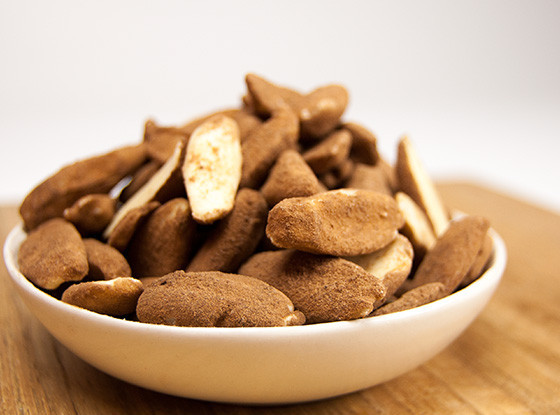
The lipid-lipase mechanism in food works in a healthy individual if the food is raw – the enzymes make sure the fat will be assimilated or dispatched properly.
If the fats are processed in any way, like French fries, the lipid has no lipase.
Cooked lipids become distorted and mutated to a point that the body does not recognise them. As a result, our body stores the fats in places where we store toxins. This is why mucus builds up in our colon.
The quality of lipids you eat with determine your health. If the fats you ingest are from fries and cooked steak, you will have droopy eyes, foggy brain, and more-than-average gray hair, and cellulite.
If you have plant-based super energetic lipids in diet from coconut, sprouted nuts and seeds, coconut, avocado, olives, you will feel energetic and are more likely to be skinnier than the person who eats lots of cooked meat, even if you eat the same amount of calories.
Dr. Douglas Graham: Author of The 80/10/10 Diet and Founder of FoodnSport
When there’s more fat in the bloodstream than we require… once we go into double digit fat consumption in our diet, then the blood actually becomes thicker, and the transport of nutrients becomes sluggish, so sugar spends more time in the bloodstream.
At the delivery end is where we have the big problem, because fat in the diet impairs the pancreas’ secreted insulin to function as the doorman that allows sugar to get to the cells.
As a result, sugar builds up in the bloodstream. As the fat level in the bloodstream rises, a condition results known as insulin resistance. This condition is completely reversed when we lower fat in our diet. This has been shown by a variety of medical doctors.
In recent videos such as “How to Become a Diabetic in Six Hours,” and as far back as 1959 in the Journal of the American Medical Association, it was declared that too much fat in the diet is the cause of diabetes, of high blood sugar.
If we want sugar to get out of the bloodstream and go to the cells where it belongs, it can only do so efficiently when there is low fat in the bloodstream and diet. The same thing is true for oxygen. When you can’t get oxygen to the cells, you raise the likelihood of heart attack, cancer, and you impair fitness performance.
When you can’t get sugar to the cells, you increase the likelihood of diabetes, digestive disorders, and a wide variety of problems that are associated with this uptake, transport, and delivery issue. This is all corrected as soon as we lower the fat in the diet.
Dr. Christopher Gardner: Director of Nutrition Studies at the Stanford Prevention Research Center and Professor of Medicine at Stanford University
What’s interesting about this is that you could look at two people. They’re the same height, the same weight. One of them has really great insulin sensitivity. He/she just eat a meal and all the glucose gets put away. Another person who looks at face value almost the same can be metabolically really different. And this person is struggling to put that glucose away.
So let’s flip this back to diets. If you’re eating a low-fat diet, you’re not getting a lot of calories from fat or protein especially since protein level doesn’t vary that much. Mostly what you’re replacing the fat with is carbs, and carbs are glucose.
If someone is insulin resistant, giving this person a lower and lower fat diet is a higher and higher carb diet. And this person is struggling with that. We think those are the folks, when you cut back on the carbs and replace that with fat, they do better. Then their insulin isn’t struggling so much to put all the carbohydrate away.
Whereas the flip side is, if you are insulin sensitive, if you’re lucky enough that your insulin really works well at opening those doors, then you do better on a low-fat diet.
Verdict? Jury is still out on this one. I’d say it depends on your metabolic type since no one diet fits all, as Dr. Gardner has stated in our previous interview.
And if you eat fat, choose healthy, whole, plant-based fat like avocado and pre-sprouted nuts, as opposed to cooked fat as well as processed oil… yes even extra-virgin olive oil and coconut oil.
Got burning health questions and new year resolutions? Leave a comment!
Image Source: tastyhealthproducts.com / barefootprovisions.com

